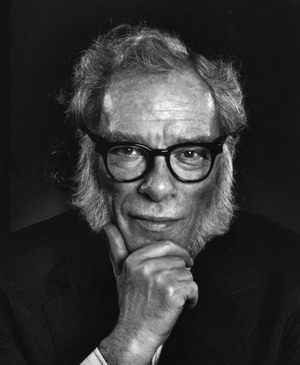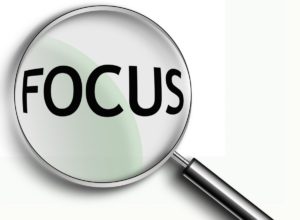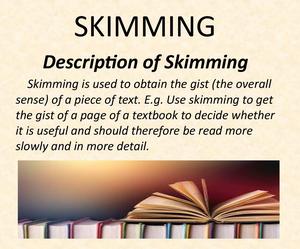Remember Virtually Everything You Read
You’ve probably read many books in your life, quite possibly hundreds. And many of them taught you a lot, on all kinds of subjects. But how much of that do you actually remember? The truth is, all learning comes down to one thing in the end: memory. If you can’t remember what you’ve learned, it’s been a virtually useless and wasted experience.
 Imagine, from now on, learning from every single thing you read. Imagine how much you could improve your life! It might seem like an impossible dream, but you can remember virtually everything you read, if you just follow a few simple rules.
Imagine, from now on, learning from every single thing you read. Imagine how much you could improve your life! It might seem like an impossible dream, but you can remember virtually everything you read, if you just follow a few simple rules.
First, not everything you read is important. It would be nice to think otherwise, but the plain fact is, some of what you read is purely for entertainment. And there’s nothing wrong with that, of course, nothing at all. And then there’s stuff that you read for information that just isn’t of any real value. The thing is to recognise that there are some things you read that can impact your life positively, and for these you need a better approach.
Just remember what you need to remember
 Okay, now we’ve narrowed it down. We’re talking about this segment of your reading that you’d love to assimilate forever. It would be amazing to be confident that for these books and articles you will, without doubt, remember virtually everything, all the good stuff, and you would absorb it into your mind on a permanent basis.
Okay, now we’ve narrowed it down. We’re talking about this segment of your reading that you’d love to assimilate forever. It would be amazing to be confident that for these books and articles you will, without doubt, remember virtually everything, all the good stuff, and you would absorb it into your mind on a permanent basis.
For these books and articles, you need to read them in a certain way. Don’t just skim them, and don’t speed read them. Neither of these is a good approach. As the amazingly prolific writer Isaac Asimov once said, “I’m not a speed reader, I’m a speed understander!”.
Focus
So we come to Rule 1: FOCUS.
If something is important, you have to focus on it. Give it all your attention. Don’t settle for reading it while you’re doing something else. Read it as though it is of great importance. If you read it properly, it will be of great importance, because you will learn from it and retain that knowledge permanently.
 So set aside some serious reading time. No internet. No phone. No interruptions at all, if possible. Just you, and the material. Read it carefully, and slowly, if necessary. Don’t force yourself to read it all at one sitting. You want to focus on it, and learn from it, but you don’t want to get bored with it. Spread the reading over a week, if need be. Or longer. Makes no difference. You’ll learn so much, if you do it correctly, so if it takes a while, so what?
So set aside some serious reading time. No internet. No phone. No interruptions at all, if possible. Just you, and the material. Read it carefully, and slowly, if necessary. Don’t force yourself to read it all at one sitting. You want to focus on it, and learn from it, but you don’t want to get bored with it. Spread the reading over a week, if need be. Or longer. Makes no difference. You’ll learn so much, if you do it correctly, so if it takes a while, so what?
Gather information
Rule 2: GATHER YOUR INFORMATION.
Take a good look at the book’s cover. You can learn a lot about a book from its cover. You can’t judge a book by its cover, but you can get the essence of it from the cover.
Read the contents list. Read the blurb on the back of the book. Read the introduction. Read any reviews about it, if you can find any (there may be some in the inside cover, or in the introduction, or you might find some where you bought the book).
 Take a quick flick through the book and see if you can gain an insight as to the book’s contents, or indeed its value. This isn’t speed reading, this is just skimming. You might find that for the sake of these few minutes you’ve saved yourself the time of reading the book. Maybe it’s a book you’re not prepared to waste your time on. This doesn’t mean to say it’s a lousy book, just that maybe it’s not really what you’re looking for. Maybe it doesn’t really deal with the subject you had in mind, or in a way you thought it would. So a few minutes of skimming is time well spent. Make it brief but make it count.
Take a quick flick through the book and see if you can gain an insight as to the book’s contents, or indeed its value. This isn’t speed reading, this is just skimming. You might find that for the sake of these few minutes you’ve saved yourself the time of reading the book. Maybe it’s a book you’re not prepared to waste your time on. This doesn’t mean to say it’s a lousy book, just that maybe it’s not really what you’re looking for. Maybe it doesn’t really deal with the subject you had in mind, or in a way you thought it would. So a few minutes of skimming is time well spent. Make it brief but make it count.
Make brief but meaningful notes
Rule 3: MAKE NOTES.
We all seem to have the idea that we can learn things haphazardly, in a more or less casual way, and almost by magic. Sorry to introduce a simple but annoying fact here, but that’s just not going to happen. When you were studying for exams, and assuming you were studying seriously and actually cared about whether or not you passed, I’m sure you followed some sort of plan. You read a chapter and made a few notes on it, or just made notes generally as you went along. In effect, you reduced the material to its essence. And you were able to learn it, i.e. remember the salient points of it, in the process.

Sorry ... MEMBERS ONLY!
UNLOCK FOR FULL EXERCESS!EXERCESS is an online community of people who want to seriously improve their health and fitness, both mental and physical.
JOIN FREE TODAY!
… and get complete and unfettered access to an absolute goldmine of valuable information.
Already a member? Sign in!
